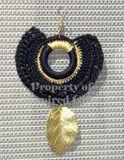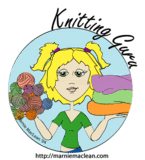 Winter temps in these parts can be hard on one's hair. Natural or relaxed the cold harsh weather can wreak havoc on your style and on the condition of your strands, leaving it dry and brittle. Styling one's hair in the dead of winter's dry air can cause "Winter Static" -static buildup from products and dry air that leads to tangles, knots, and fly-aways. Good looking healthy hair requires moisture and protection from the harsh winter elements. But in a season that's known to be wet and with your mom's old saying "going out in the cold with wet hair will make you sick" in the back of your mind, how do you get the moisture that you need? By the way, that's not true.
Winter temps in these parts can be hard on one's hair. Natural or relaxed the cold harsh weather can wreak havoc on your style and on the condition of your strands, leaving it dry and brittle. Styling one's hair in the dead of winter's dry air can cause "Winter Static" -static buildup from products and dry air that leads to tangles, knots, and fly-aways. Good looking healthy hair requires moisture and protection from the harsh winter elements. But in a season that's known to be wet and with your mom's old saying "going out in the cold with wet hair will make you sick" in the back of your mind, how do you get the moisture that you need? By the way, that's not true.
Dry hair and by extension a dry scalp doesn't need much to be re-invigorated. As long as you have water and quality natural products (used in moderation) your hair can sing in the rain, sleet or snow. Here's a few things you should know about keeping your hair gorgeous in every season:
- Drink lots of water! I can't stress this enough. Beauty starts from the inside and so do your strands. If your body is not properly hydrated your hair will grow brittle from the root leading to quick breakage and less retainage. Water transports vitamins, nutrients, and hormones throughout your body including to your scalp. It also carries away any toxins. Try to drink as much as half your body weight (in ounces (oz)) in water each day.
- Eat your fruits & vegetables. Try a salad a day of dark leafy greens for Copper and Iron, which prevent hair loss, and colorful toppings like Avocado - counteracts slow hair growth, Broccoli - promotes supple and elastic (breathable) scalp, Garlic and Red Onions - rich in MSM Sulfur for strong hair strand structure, and a whole host of others. Not only will you have gorgeous hair but a FABU body and skin to go along with it!
- Pre-Condition, Condition, & Deep Condition. Depending on where you live, and the wind chill factor of your locale, will determine how often you can put water in your hair. In really cold areas such as the the east coast and the pacific northwest the weather may make daily washes/rinses prohibitive. Only you can determine what works best for your hair in your area.
Because I'm in Southern California with our temperate climate, I can get away with rinsing my hair more often than others. I say rinsing because unless you've found a good non-drying shampoo (more on that in the future) the sulfates can be extra drying in the winter. To combat this many women create a conditioning regimen for their hair that includes:
>>Pre-conditioning - dry bathing their hair in moisture retaining products such as castor oil, jojoba oil, olive oil, honey, essential oils, and even apple cider vinegar and baking soda. By doing this, you will limit the amount of natural oils made by your scalp, lost during washing.
>>Conditioning - use a moisture rich conditioner either after shampoo or as your shampoo to retain the water from your wash. I'm a big fan of conditioner washing also called no-poo or low-poo. Shampoo is made to cleanse the scalp but can be too harsh for your hair strands, conditioner is made to clean, smooth, and coat your hair strands and retain the moisture. If you don't use a lot of pruducts or if you don't have a problem with build-up no or low-pooing may be the way to go for you. I do this about 2 to 3 times per week and wash with shampoo every 2 weeks (more frequently if I've used a lot of products).
>>Deep Conditioning - combines pre-conditioning and conditioning (low/no pooing) together in one step to be done either after shampooing or after clear rinsing your hair. Mix both of the earlier treatments together, apply to your hair, and for best results apply low heat using a heat cap or warm towel over a shower cap, for at least 15 minutes to open the hair follicles for deeper penetration. Sometimes I even go into the steam room at the gym for an extra conditioning bang. Rinse after and style as usual. - Keep products to a minimum. Too many products and/or too much of a product creates product build-up. Product build-up is like a smothering sludge that sits on your scalp closing your hair follicles preventing them from breathing properly. If your hair is closed and not porose then moisture will not get in. Remember our hair needs as much moisture as possible.
Did you know that too much product can aid in the growth of dandruff, prematurely thin your hair strands, give your hair shade a mousy tinge, and cause acne? Did you also know that mixing to many different products from different manufacturers together can be toxic and cause an allergic reaction? Yes, cut back on the product! Less is better.
Another reason I advocate less product is so that you know which products actually work on your hair and which don't saving you time, heartache, and money! - Treat your scalp. Gently massage your scalp between washes/rinses. Use a light carrier oil such as olive oil mixed with an essential oil like rosemary or tea tree oil. With a dollop on your finger tips work in circular motions on your scalp. Try not to get it on the hair. If oils are not your thing try a nice cream moisturizer.
- Reduce Heat. We all know that heat is drying. No matter how it's used, it usually ends up dehydrating, evaporating, and leaving dry something or another. Prolonged heat causes damage and reduces elasticity. Hair with body and movement, soft coils and fat curls require elasticity to be bouncy and spring back into shape. Too much heat hinders this and leaves strands permanently straight and limp.
- Get regular trims. Yes, make sure the already dead dry ends are gone. They sap moisture from the rest of your hair.
- Protect it from the elements. In the winter months I tend to put my hair up in protective styles to keep handling to a minimum and to retain those ends. I often wear braid extensions, yarn braids or corn rows to achieve an instant style update all the while keeping my tresses up and protected. Many women wear wigs, weaves, buns or chignons (be careful with your hair line) to achieve the same results. Becareful that whatever style you choose it's not so tight that it pulls excessively at the scalp. The pullng alone can cause stress bumps and dry scalp that looks like dandruff.
Contrary to the the urban legend that your hair grows better dirty- clean hair and a healthy scalp is the way to go. Nothing is more unattractive than a women patting, scratchy, and rubbing her (more than likely dirty) head in an effort to get at the itchies while trying to maintain her hairstyle for 2 weeks or more. Stop the insanity. Healthy hair, be it short or long, no matter how you rock it needs to be clean in order to be shiny and resilient.
I hope the tips above help you to take control of your hair and triumph over your dry scalp. These are tried and true tips that I've learned over the years and have helped me greatly. Questions? Leave me a comment. For a list of some of the products I use, check my hair album here! Great links on the sidebar ~~~~>
Kamika

























![Validate my Atom 1.0 feed [Valid Atom 1.0]](http://img.photobucket.com/albums/v238/Inspiredgifts/valid-atom.png)
2 comments:
I am so glad you put that part about having a clean scalp & hair in there. I can't believe how many of us hold onto that dirty hair myth, ugh!
I've been natural since 2000 & though it was rough at first (because I didn't have these tips), I've learned a lot since. A lot of people could come here & really get educated!
great tips....thank you !
good hair is clean hair !!!!
Post a Comment